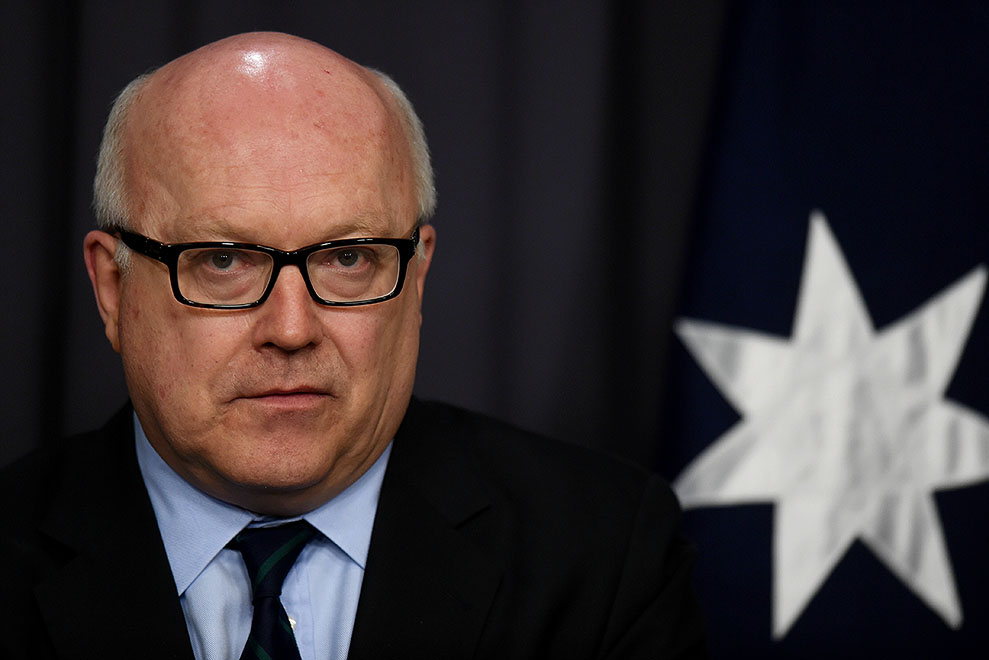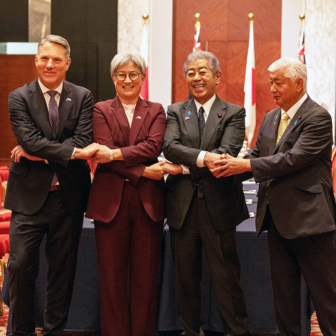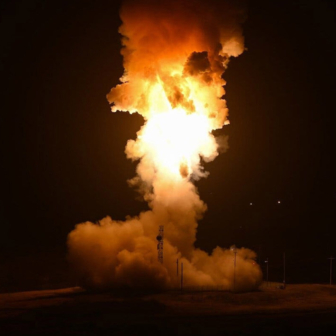Like the majority of Australia’s anti-terrorism initiatives, the Counter-Terrorism Legislation Amendment (Foreign Fighters) Bill 2014 is an omnibus: it seeks to amend more than twenty existing laws, including the Criminal Code, as part of the Abbott government’s ongoing response to the escalating threat posed by terrorism in Syria and Iraq.
This second tranche of national security reforms for 2014 is necessary, the government argues, because the existing legislation fails to adequately address “the domestic security threats posed by the return of Australians who have participated in foreign conflicts or undertaken training with extremists overseas.” The bill includes measures intended both to prevent “foreign fighters” from travelling abroad to engage in terrorist behaviour, and to deal with them more effectively on their return.
Some of the amendments are more controversial than others. The cessation of welfare payments to people whose passport or visa has been cancelled on security grounds has not attracted significant attention, for example. But many of the new measures seek to expand the scope of existing offences significantly, and others aim to grant an even greater range of powers to the foreign affairs minister, the attorney-general and ASIO. These powers are above and beyond the unprecedented new powers conferred on ASIO by the first tranche of national security legislation, which has just passed both houses of parliament.
In response to the rise of the Islamic State, the government seeks to make a number of changes to the Criminal Code’s provisions relating to terrorist organisations. It is already an offence under the Criminal Code for a person to intentionally provide training to, or receive training from, a terrorist organisation. The government is concerned that this does not cover circumstances in which there are “no formally defined teaching and learning roles in a training session” – for example, “where a group of like-minded individuals decide to acquire weapons and meet at a location to practice using them.” The bill aims to criminalise participation in training with a listed organisation. This might indeed fill a rather narrow gap, but it is unlikely that it will significantly improve the Commonwealth’s ability to prosecute suspected terrorists; the Criminal Code already includes a range of offences that would capture this type of behaviour, including the very broad offence of possessing a thing connected with preparation for, engagement in, or assistance in a terrorist act.
The government also wants to update the grounds on which a terrorist organisation can be listed under the Criminal Code. At the moment, the attorney-general can only list an organisation if it directly or indirectly counsels or urges the doing of a terrorist act, directly or indirectly provides instruction on the doing of a terrorist act, or praises terrorism where there is a substantial risk that such praise might lead a person to engage in a terrorist act. If the bill passes, the attorney-general will also be able to list a terrorist organisation on the grounds that it promotes or encourages terrorism, regardless of whether that encouragement or promotion has actually caused others to engage in terrorism.
The government has rather run with this concept of advocacy. The foreign fighters bill also introduces a new individual offence of “advocating” terrorism. Again, the definition has been drawn broadly; as with the grounds for listing a terrorist organisation, it extends to situations in which a person encourages or promotes the doing of a terrorist act or terrorism offence and is reckless as to whether another person will engage in that conduct as a result. A terrorism act or terrorism offence need not actually occur for the offence of advocating terrorism to have been committed. This could have a serious chilling effect on the ability of individuals to comment freely and legitimately on issues relating to politically and religiously motivated violence, such as current events overseas.
While these amendments might capture behaviour far removed from the actual doing of a terrorist act, perhaps of even greater concern is the innovation covered by the term “declared area.” The bill grants the minister for foreign affairs the power to declare such an area if she is satisfied that a listed terrorist organisation is engaging in hostile activities in that area. It is automatically an offence to enter, or remain in, a declared area. This is an extraordinary offence that is likely to criminalise a range of legitimate behaviours, including, for example, religious pilgrimage. While the government is not technically reversing the onus of proof, as some initially feared – it is a defence for a person to show that he or she has entered or remained in the declared area solely for a legitimate purpose – the offence is framed in such a way that it has essentially the same effect. The prosecution need not establish that the person has travelled to that area for the purpose of engaging in terrorism or other unlawful activities.
The government has, perhaps, recognised the extraordinary nature of this offence by building in a ten-year sunset clause. But this may not be much of a protection. The government has shown a total disregard for the sunset clauses in the existing anti-terrorism laws. Four of Australia’s most controversial measures are currently subject to a sunset clause – control orders, preventative detention orders, anti-terrorism stop, search and seizure powers, and ASIO’s questioning and detention powers are all due to expire within the next two years – but the foreign fighters bill seeks to extend all of those sunset clauses by a further ten years.
This approach negates the whole purpose of including a sunset clause in legislation, which is to ensure parliamentary debate at a future date on controversial measures that may have been enacted in haste during a period of crisis. Extending the period of the sunset clause during a new security crisis denigrates the legislative process. Parliament is being asked to rush these measures through again, for the sake of national security, with the promise that it will have the opportunity to review and debate the measures properly ten years down the line. And there is nothing to stop a future government from adopting this tactic again, extending the sunset clauses without providing the opportunity for full review and debate, or worse, simply repealing the sunset clauses (thereby making the legislation permanent) as attorney-general George Brandis originally proposed.
There is no need to extend the sunset clauses on these measures now. It would be preferable for parliament to debate the foreign fighters bill now and come back to the question of control orders, preventative detention orders, anti-terrorism stop, search and seizure powers, and ASIO’s questioning and detention powers when the legislation was originally due to expire. If it then saw fit to extend the life of the legislation again, it could do so following the proper parliamentary process.
The ten-year extension of the control order and preventative detention order regimes and of ASIO’s questioning and detention warrant powers is of particular concern for two reasons. First, the control order powers are not simply being retained in their existing form. The government is seeking to expand the grounds on which a control order may be issued to include instances where there are reasonable grounds to suspect that a person has provided, received or participated in training with a terrorist organisation; engaged in a hostile activity in a foreign country; or been convicted of a terrorism offence in Australia or overseas.
That last provision is worth highlighting. Control orders could be used in cases where a person has been convicted of a terrorism offence in any foreign country, whether or not that person had received, by Australian standards, a fair trial. For example, a person could be convicted of a terrorism offence in absentia by a foreign court for engaging in legitimate opposition against an oppressive regime.
Second, the control order and preventative detention order regimes and ASIO’s questioning and detention warrant powers have all been recommended for repeal by those whose job it is to oversee the laws. In his 2012 review of the national security laws, the former Independent National Security Legislation Monitor Bret Walker SC recommended the repeal of each of the powers. In the same year, the COAG Review of Counter-Terrorism recommended the repeal of the preventative detention order regime. Despite the use of preventative detention orders for the first time since their enactment earlier this month, Walker stands by his recommendation for their repeal. The powers are “worse than useless,” he said recently, “because you can't question a person while they are being preventatively detained.”
There is no doubt that the current situation in Syria and Iraq poses an unprecedented threat to the safety and security of Australians at home, and it is right for the government to take action to prevent the possibility of a terrorist attack occurring on these shores. But any new measures, or the expansion of existing measures, must add something that is missing from the current counter-terrorism regime. The raids in Sydney and Brisbane two weeks ago show that the police and ASIO already have significant resources at their disposal. If we are going to give up some of our freedom, as prime minister Tony Abbott’s recent statement to parliament suggested we must, then any new anti-terrorism measures must be enacted with the full participation of parliament.
As Lord Hoffman remarked in the 2004 Belmarsh case, in which the UK Law Lords found that the indefinite detention of terrorist suspects was incompatible with the European Convention on Human Rights:
The real threat to the life of the nation, in the sense of a people living in accordance with its traditional laws and political values, comes not from terrorism but from laws such as these. That is the true measure of what terrorism may achieve. It is for Parliament to decide whether to give the terrorists such a victory.
When it considers the foreign fighters bill in the coming days, parliament should heed that advice. •




